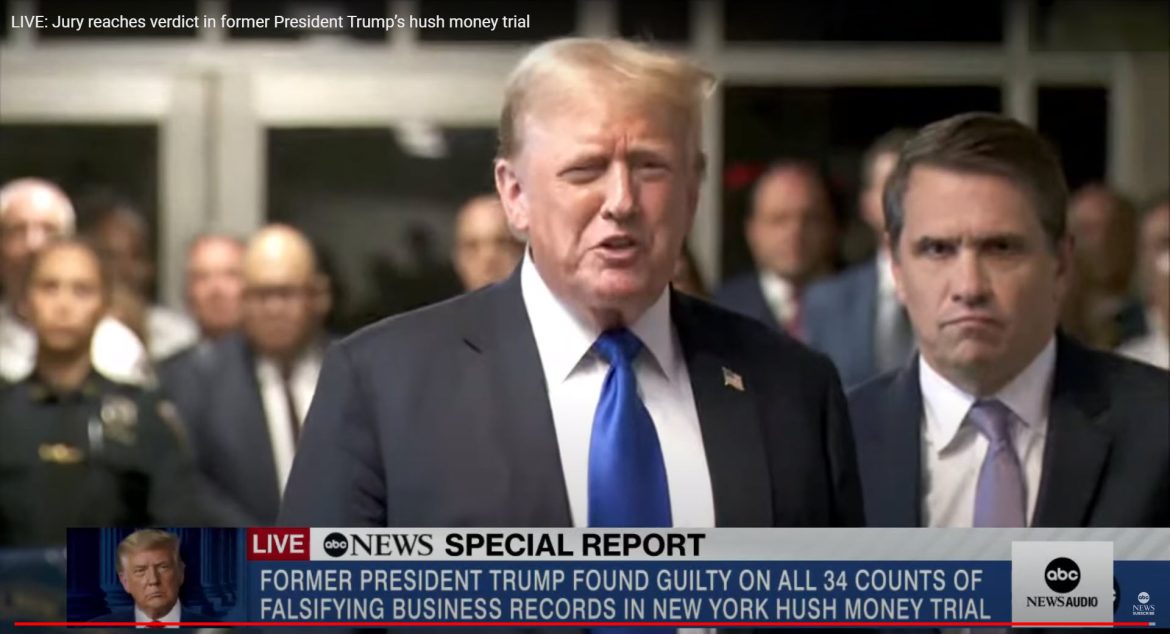In a historic ruling, former President Donald Trump is convicted of all 34 counts in the hush money trial, marking the first time in American history that a former president has been found guilty of felony crimes. The verdict was reached today by a jury in New York City, concluding a highly publicized and contentious legal battle.
Donald Trump is the first American President to stand trial and be found guilty in a criminal case. The former President spoke after the verdict was read. The New York jury has found him guilty on all counts in his hush money case. He could face four years in prison depending on the judge’s sentence, which will happen later. The judge has the discretion to reduce his sentence to a fine, probation or supervision. He is guilty of falsifying records before the 2016 election to hide payments to adult film star Stormy Daniels.
The trial centers around allegations that Trump orchestrated a scheme to silence individuals with potentially damaging information about him during the 2016 presidential campaign. The charges include multiple counts of falsifying business records, campaign finance violations, and conspiracy to commit fraud. The prosecution argued that Trump directed payments to several individuals to prevent negative stories from surfacing, thereby influencing the outcome of the election.
The case has captivated the nation, drawing intense media attention and public interest. Throughout the trial, the prosecution presented extensive evidence, including financial records, communications, and testimonies from key witnesses. The defense argued that the payments were personal matters and not intended to affect the campaign.
With the jury’s unanimous verdict, Trump now faces significant legal consequences, including potential prison time and substantial fines. Legal experts suggest that the sentencing phase will be closely watched, as it sets a precedent for holding former presidents accountable for their actions.
The conviction has immediate and far-reaching political implications. Trump, who remains a highly influential figure within the Republican Party, has hinted at a possible run for the presidency in 2024. The guilty verdict complicates his political future and raises questions about his eligibility and standing within the party.
Reactions to the verdict are swift and polarized. Supporters of Trump decry the trial as a politically motivated witch hunt, while critics argue that the ruling upholds the principle that no one is above the law. Political analysts predict that the conviction will further deepen the divisions within the country and among its political leaders.
Following the verdict, Trump’s legal team announces plans to appeal the decision, arguing that the trial was unfair and biased against him. The appeals process is expected to be lengthy and complex, potentially prolonging the legal battles for years.
As the nation absorbs the news, the implications of Trump’s conviction on American politics, the legal system, and the office of the presidency are profound. The case serves as a pivotal moment in the ongoing debate over accountability and the rule of law in the United States.



